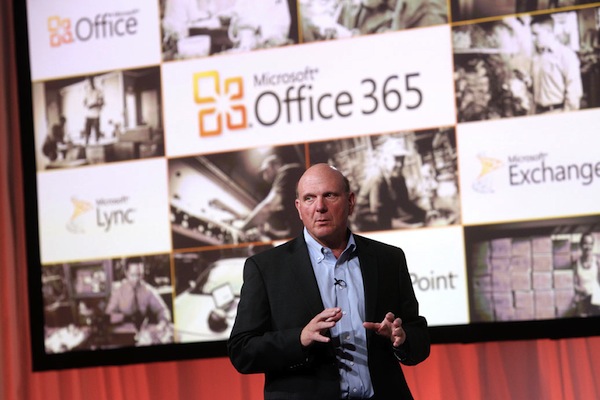
Seventh in a series. Editor: Classic 1991 tome Accidental Empires continues, looking at a uniquely American cultural phenomenon.
The founders of the microcomputer industry were groups of boys who banded together to give themselves power. For the most part, they came from middle-class and upper-middle-class homes in upscale West Coast communities. They weren’t rebels; they resented their parents and society very little. Their only alienation was the usual hassle of the adolescent -- a feeling of being prodded into adulthood on somebody else’s terms. So they split off and started their own culture, based on the completely artificial but totally understandable rules of computer architecture. They defined, built, and controlled (and still control) an entire universe in a box -- an electronic universe of ideas rather than people -- where they made all the rules, and could at last be comfortable. They didn’t resent the older people around them -- you and me, the would-be customers -- but came to pity us because we couldn’t understand the new order inside the box -- the microcomputer.
And turning this culture into a business? That was just a happy accident that allowed these boys to put off forever the horror age -- that dividing line to adulthood that they would otherwise have been forced to cross after college.
The 1980s were not kind to America. Sitting at the end of the longest period of economic expansion in history, what have we gained? Budget deficits are bigger. Trade deficits are bigger. What property we haven’t sold we’ve mortgaged. Our basic industries are being moved overseas at an alarming rate. We pretended for a time that junk bond traders and corporate disassemblers create wealth, but they don’t. America is turning into a service economy and telling itself that’s good. But it isn’t.
America was built on the concept of the frontier. We carved a nation out of the wilderness, using as tools enthusiasm, adolescent energy, and an unwillingness to recognize limitations. But we are running out of recognized frontiers. We are getting older and stodgier and losing our historic advantage in the process. In contrast, the PC business is its own frontier, created inside the box by inward-looking nerds who could find no acceptable challenge in the adult world. Like any other true pioneers, they don’t care about what is possible or not possible; they are dissatisfied with the present and excited about the future. They are anti-establishment and rightly see this as a prerequisite for success.
Time after time, Japanese companies have aimed at dominating the PC industry in the same way that similar programs have led to Japanese success in automobiles, steel, and consumer electronics. After all, what is a personal computer but a more expensive television, calculator, or VCR? With the recent exception of laptop computers, though, Japan’s luck has been poor in the PC business. Korea, Taiwan, and Singapore have fared similarly and are still mainly sources of cheap commodity components that go into American-designed and -built PCs.
As for the Europeans, they are obsessed with style, thinking that the external design of a computer is as important as its raw performance. They are wrong: horsepower sells. The results are high-tech toys that look pretty, cost a lot, and have such low performance that they suggest Europe hasn’t quite figured out what PCs are even used for.
It’s not that the Japanese and others can’t build personal computers as well as we can; manufacturing is what they do best. What puts foreigners at such a disadvantage is that they usually don’t know what to build because the market is changing so quickly; a new generation of machines and software appears every eighteen months.
The Japanese have grown rich in other industries by moving into established markets with products that are a little better and a little cheaper, but in the PC business the continual question that needs asking is, “Better than what?" Last year’s model? This year’s? Next year’s? By the time the Asian manufacturers think they have a sense of what to aim for, the state of the art has usually changed.
In the PC business, constant change is the only norm, and adolescent energy is the source of that change.
The Japanese can’t take over because they are too grownup. They are too businesslike, too deliberate, too slow. They keep trying, with little success, to find some level at which it all makes sense. But that level does not exist in this business, which has grown primarily without adult supervision.
Smokestacks, skyscrapers, half-acre mahogany desks, corporate jets, gray hair, the building of things in enormous factories by crowds of faceless, time card-punching workers: these are traditional images of corporate success, even at old-line computer companies like IBM.
Volleyball, junk food, hundred-hour weeks, cubicles instead of offices, T-shirts, factories that either have no workers or run, unseen, in Asia: these are images of corporate success in the personal computer industry today.
The differences in corporate culture are so profound that IBM has as much in common with Tehran or with one of the newly discovered moons of Neptune as it does with a typical personal computer software company. On August 25, 1989, for example, all 280 employees of Adobe Systems Inc., a personal computer software company, armed themselves with waste baskets and garden hoses for a company-wide water fight to celebrate the shipping of a new product. Water fights don’t happen at General Motors, Citicorp, or IBM, but then those companies don’t have Adobe’s gross profit margins of 43 percent either.
We got from boardrooms to water balloons led not by a Tom Watson, a Bill Hewlett, or even a Ross Perot but by a motley group of hobbyist/opportunists who saw a niche that needed to be filled. Mainly academics and nerds, they had no idea how businesses were supposed to be run, no sense of what was impossible, so they faked it, making their own ways of doing business -- ways that are institutionalized today but not generally documented or formally taught. It’s the triumph of the nerds.
Here’s the important part: they are our nerds. And having, by their conspicuous success, helped create this mess we’re in, they had better have a lot to teach us about how to recreate the business spirit we seem to have lost.
Reprinted with permission
Photo Credit: NinaMalyna/Shutterstock











 eMusic, the audio download and streaming service founded in 1998, gets less attention than it deserves. But that may now be about to change with the announcement of a major move last night. The site, which is home to countless independent artists, has tried to become more mainstream, but has suffered due to its subscription model which places an enormous constraint on sales.
eMusic, the audio download and streaming service founded in 1998, gets less attention than it deserves. But that may now be about to change with the announcement of a major move last night. The site, which is home to countless independent artists, has tried to become more mainstream, but has suffered due to its subscription model which places an enormous constraint on sales. Luxury British smartphone manufacturer Vertu used to be owned by Nokia and made its name producing incredibly expensive Symbian handsets. But times move on, and the company is now focusing on producing incredibly expensive Android handsets.
Luxury British smartphone manufacturer Vertu used to be owned by Nokia and made its name producing incredibly expensive Symbian handsets. But times move on, and the company is now focusing on producing incredibly expensive Android handsets. The device comes in four designs -- Titanium Black Leather (£6,700/$10,450), Titanium Pure Black (£7,900/$12,322), Titanium Black Alligator (£8,900/$13,882) and the top of the line Titanium Black PVD Titanium Red Gold Mixed Metals (£13,900/$21,678).
The device comes in four designs -- Titanium Black Leather (£6,700/$10,450), Titanium Pure Black (£7,900/$12,322), Titanium Black Alligator (£8,900/$13,882) and the top of the line Titanium Black PVD Titanium Red Gold Mixed Metals (£13,900/$21,678).
 And the extension also adds an "Encode to QrCodeR" option to the right-click menus for selected texts, images or URLs within the current page. (Or, if the object is an image and a link, then you’ll get separate "Encode image" and "Encode URL" options.)
And the extension also adds an "Encode to QrCodeR" option to the right-click menus for selected texts, images or URLs within the current page. (Or, if the object is an image and a link, then you’ll get separate "Encode image" and "Encode URL" options.) If, like my colleague Joe Wilcox, you’ve already been lucky enough to get your hands on
If, like my colleague Joe Wilcox, you’ve already been lucky enough to get your hands on 
 Little more than three weeks since the last build, Android Open Kang Project, the team behind the popular AOKP green droid custom distribution, has unveiled
Little more than three weeks since the last build, Android Open Kang Project, the team behind the popular AOKP green droid custom distribution, has unveiled  Binary Fortress Software has released
Binary Fortress Software has released  Windows 8 users will also benefit from a number of Pro-only enhancements, specifically a boot to desktop option to bypass the Windows 8 Start screen, plus options to reduce the Start Screen to a user-custom size, move the Power User menu to the current mouse cursor position and an option for adjusting the border size for application windows. This latter option is also available to Free edition users.
Windows 8 users will also benefit from a number of Pro-only enhancements, specifically a boot to desktop option to bypass the Windows 8 Start screen, plus options to reduce the Start Screen to a user-custom size, move the Power User menu to the current mouse cursor position and an option for adjusting the border size for application windows. This latter option is also available to Free edition users. Launch your PC and very soon there will be a host of processes making use of your internet connection. Your antivirus program might download new definitions; other programs will check for updates; your email client may scan for new messages, and of course there’s also your browser, download manager and anything else you’ve directly launched for some specific task.
Launch your PC and very soon there will be a host of processes making use of your internet connection. Your antivirus program might download new definitions; other programs will check for updates; your email client may scan for new messages, and of course there’s also your browser, download manager and anything else you’ve directly launched for some specific task. If even this isn’t enough, though, right-click the graph, select "Statistics", and you’re presented with tables showing your network traffic (total and average) for the past hour, day, month and year. The program will even try to predict how much bandwidth you’ll use in future. (This didn’t look too accurate in our initial tests, but perhaps the figures will improve as NetTraffic has more time to sample your usage.)
If even this isn’t enough, though, right-click the graph, select "Statistics", and you’re presented with tables showing your network traffic (total and average) for the past hour, day, month and year. The program will even try to predict how much bandwidth you’ll use in future. (This didn’t look too accurate in our initial tests, but perhaps the figures will improve as NetTraffic has more time to sample your usage.) Google Nexus owners, unlock your devices and start checking for updates because Android 4.2.2 Jelly Bean
Google Nexus owners, unlock your devices and start checking for updates because Android 4.2.2 Jelly Bean  UK supermarket chain Tesco is set to launch a free online video streaming service called
UK supermarket chain Tesco is set to launch a free online video streaming service called 

